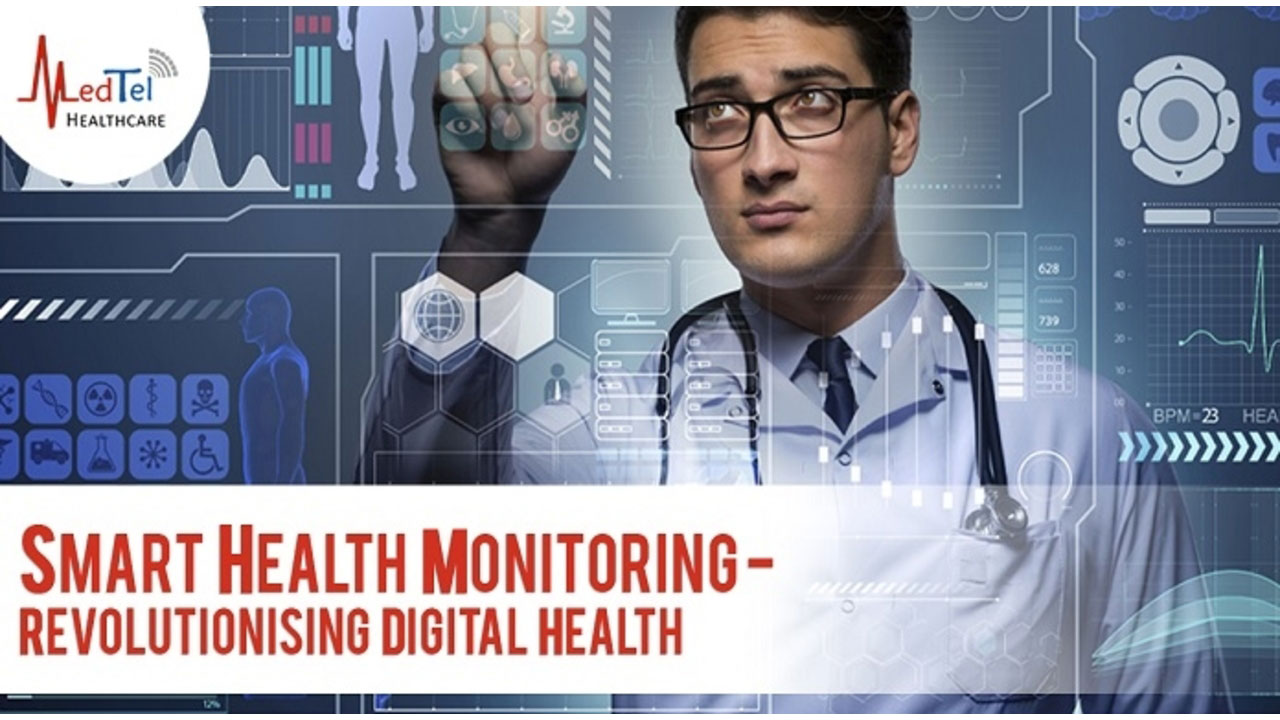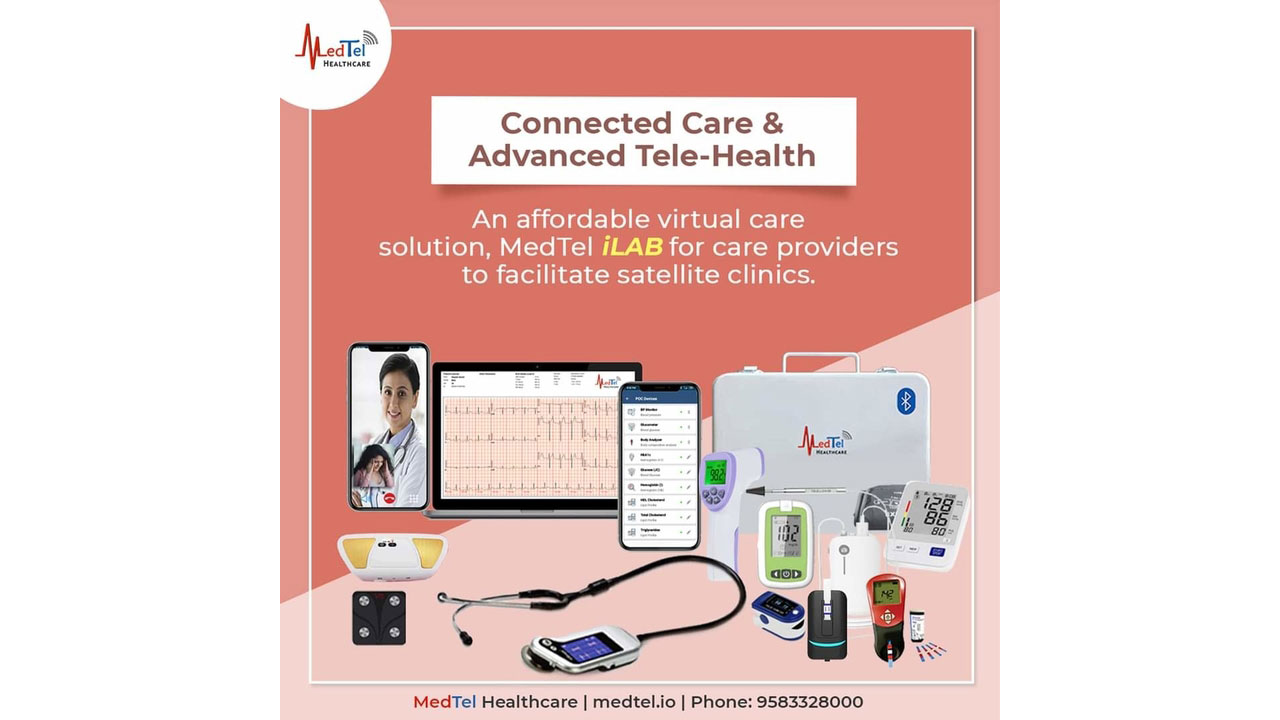Smart Health Monitoring – Revolutionising Digital Health
Why This Boom?
How Important Is Smart Health Monitoring?
COVID-19 uncovered just how vital smart health monitoring is. As social distancing and quarantining prevailed, frequent hospital visits were also discouraged. This meant that a novel solution had to be created for patients who required routine monitoring. Thanks to the Internet of Things (IoT) – more specifically, the Internet of Medical Things (IoMT) –connected care, and smart home-based health platforms, contact-based hospital visits are no longer obligatory unless necessary. Using wearable technology and sensors, patient data is transmitted to healthcare providers and analysed to prescribe treatment. Not only does this save time, it saves lives.
Types of Health Monitoring Systems
Smart health monitoring systems are categorized into three types based on their main hardware components:
- Smartphone-based Health Monitoring System
- Sensor-based Health Monitoring System
- Microcontroller-based Health Monitoring System
Smartphone-based Health Monitoring System
Smartphones contain a host of features that together can help smart health providers develop advanced smart health systems. Prime among these is voice monitoring that is being leveraged to quantify and track vocal hyperfunction in patients with chronic or recurring voice conditions.
Here are a few examples:
- Researchers have tested voice monitoring systems using smartphones with accelerometer sensors. Here, a mini accelerometer acts as a voice sensor while the smartphone functions as a data acquisition platform. The device is worn around the patient’s neck.
- Other researchers have tested systems that use speech synthesis and speech recognition to communicate with patients. The system records semantics and big data from the measurement device and stores it on the phone.
Recently, researchers investigated a smartphone-based breathing monitoring system with the potential to leverage breathing sounds for data acquisition. They proposed that this would be especially beneficial for self-testing for COVID-19 where lungs are compromised and breathing is affected. They used a causal model for this and a systems thinking approach to propose a system dynamics model. They stated that with minor fine-tuning, the model would be applied to other smartphone-based monitoring systems through apps that track mental status, heart health, blood pressure, etc.
Sensor-based Health Monitoring System
In a sensor-based health monitoring system, electronic data signals gather patient data following which an alarm notifies the patient of anomalies. Common sensors include pulse rate, ECG, and temperature sensors. Researchers have proposed WBAN or wearable body area network architecture with cloud computing to facilitate this type of monitoring system. However, there is still a way to go before the technology is perfected.
Some of the issues currently at the fore include standardization and privacy. With further research and technological advancements, sensor-based systems can augment digital health success through smart health monitoring.
Recent Studies
Researchers have explored the potential of wearable smart sensors for vital signs monitoring and disease control during epidemics.
- In a study published on Springer titled ‘The application of wearable smart sensors for monitoring the vital signs of patients in epidemics: a systematic literature review’, the authors found that wearable sensors showed the highest potential for controlling and diagnosing early signs of disease. Technological solutions, such as the application of sensors, could help improve disease management. They can reduce patient traffic to hospitals, thereby lowering interactions and slowing transmission of disease.
Microcontroller-based Health Monitoring System
One of the commonest devices in health monitoring systems, microcontrollers are ideal for processing raw sensor data quickly. Owing to their small size, they’re perfect for portable monitoring solutions. Researchers have been developing and testing several microcontroller-based monitoring systems in a bid to find the best.
- One of these is with the use of Arduino which is controlled by a smartphone app. Analog data is obtained from sensors, transmitted to the Arduino Uno board, and converted into digital data. Using Bluetooth, these values are transferred to the phone.
- Another system leverages the Internet of Things (IoT) and uses three layers to monitor health: detecting, application, and transportation layers. While efficient, the system has trouble handling several sensors simultaneously.
Researchers are constantly innovating solutions to provide the best smart health monitoring systems. A recent proposed Arduino-based system is designed to automatically monitor and assist senior and physically challenged patients using IoT devices that track blood pressure, heart rate, and ECG. The system uses smart sensors that obtain raw data which is sent to a database, evaluated, and maintained. Physicians can use the data to monitor patients from anywhere. The system can be further expanded by adding features such as location, details of hospitals, a catalogue of doctors, and ambulance service connectivity.
As an answer to the challenges presented by the availability and response time of cloud-based systems, security and privacy, there’s a rising interest in architectures like fog computing. It has the potential to increase the efficiency of entire smart health monitoring systems by reducing the amount of data moving between the cloud and sensors, and eliminating the risk of data centre failure.
There’s a lot that still needs to be done to improve smart health monitoring. However, advances in AI, wearables, voice assistants, and the demand for contactless patient monitoring are driving positive changes in smart health. So too is the growing awareness of the importance of health and wellness.
MedTel: Connected Care for Smart Health Monitoring
MedTel offers an end-to-end platform that empowers care providers immensely. We provide customized and omnichannel ‘Connected Care Solutions’ for patients. Our team of data science enthusiasts aggregate and interpret substantial amounts of health data and information to create personalized actionable insights. MedTel delivers better clinical and financial outcomes for both providers and patients, while creating a seamless digitally connected care ecosystem.


